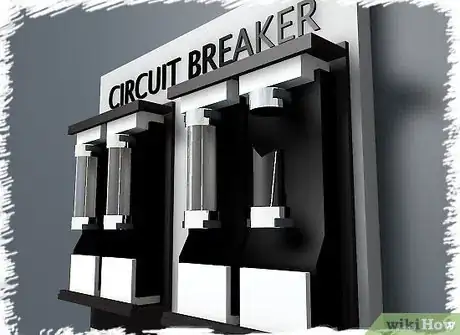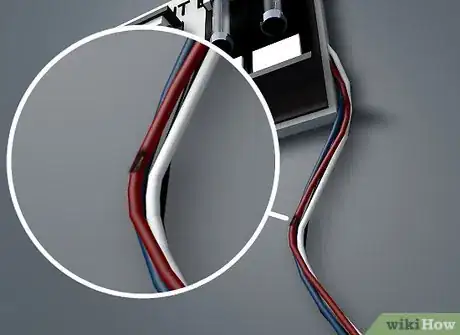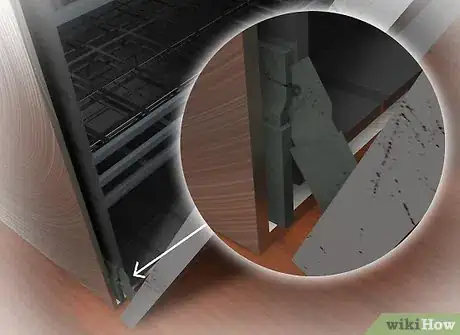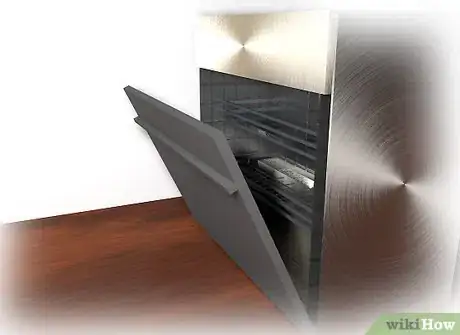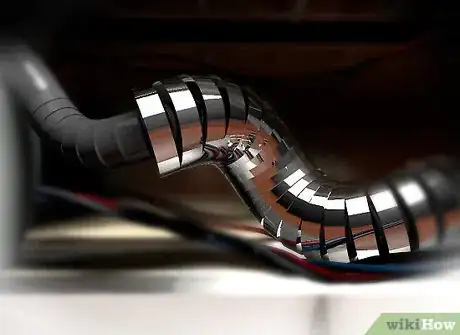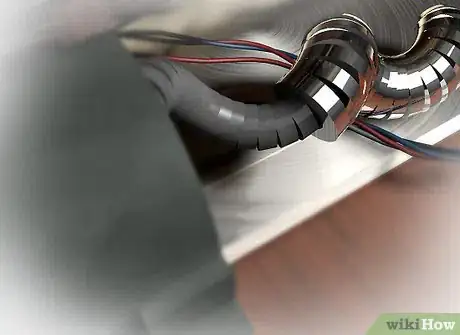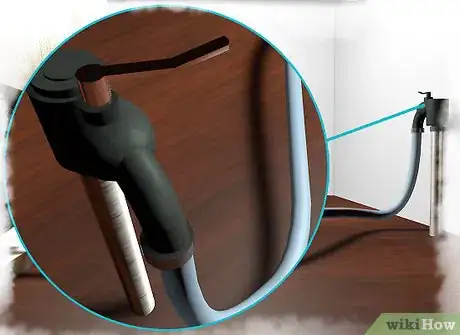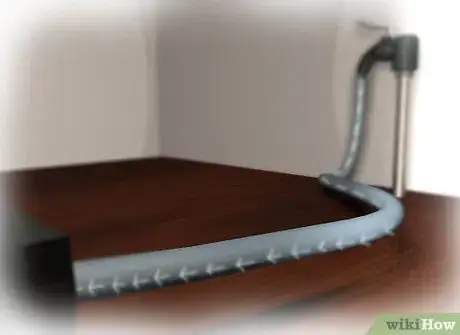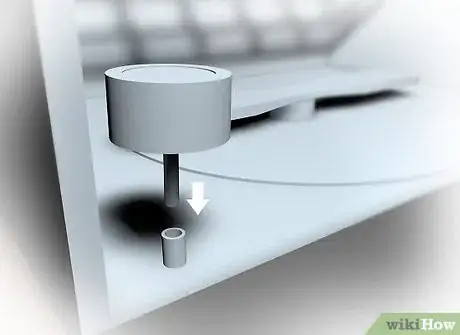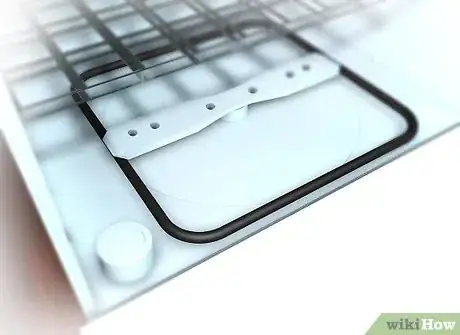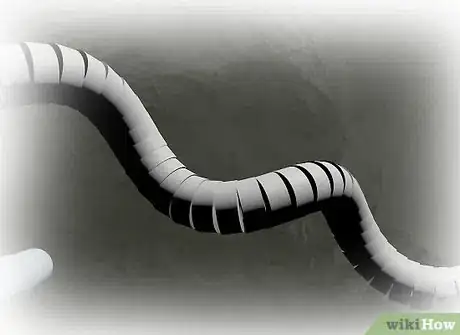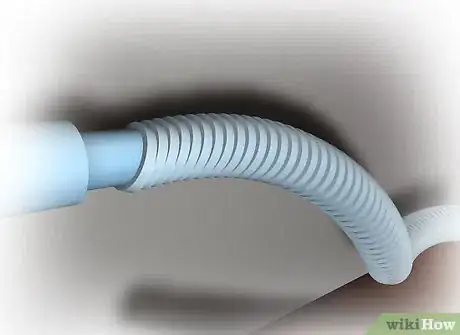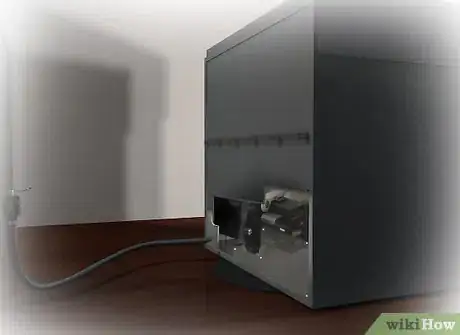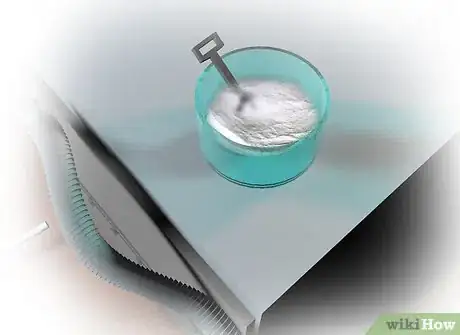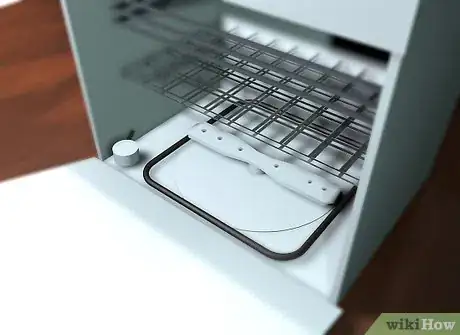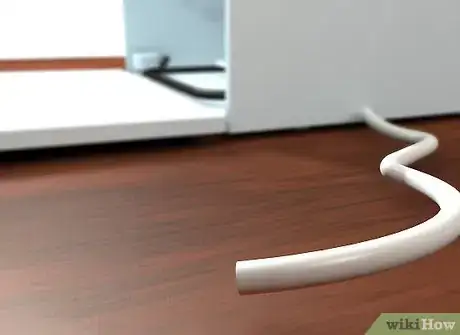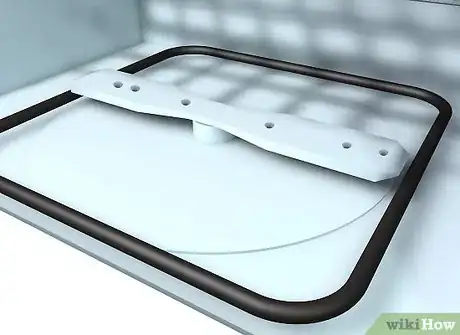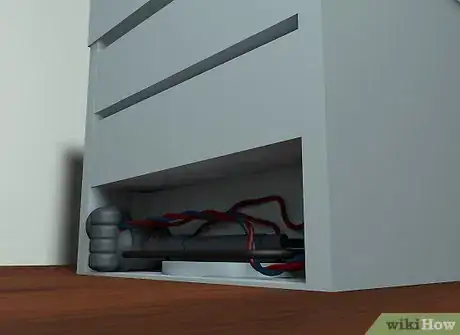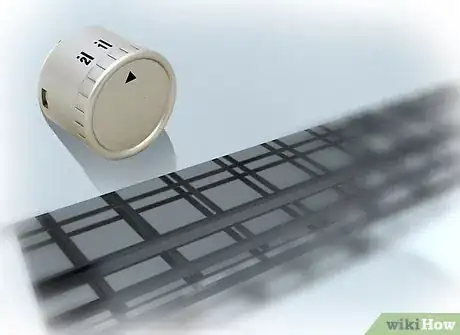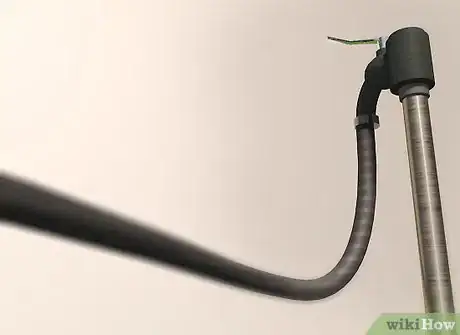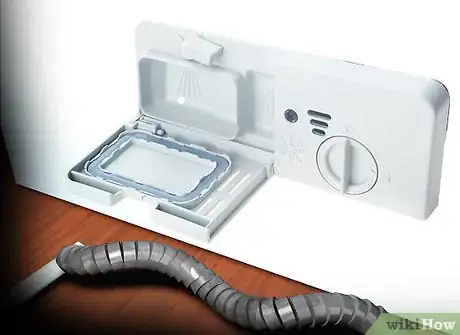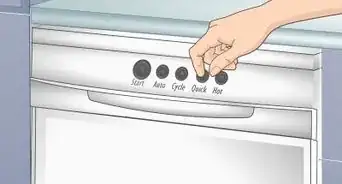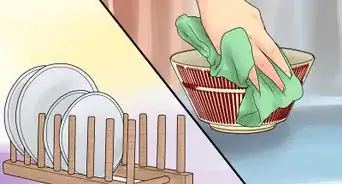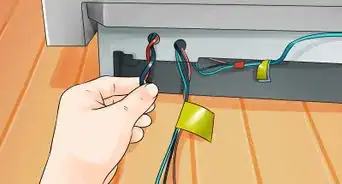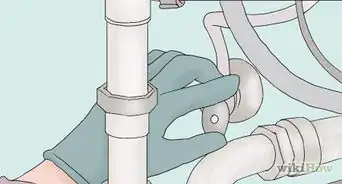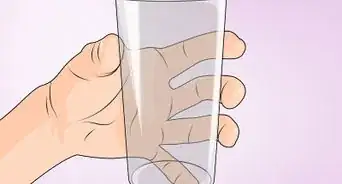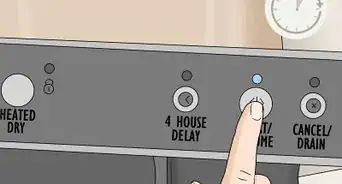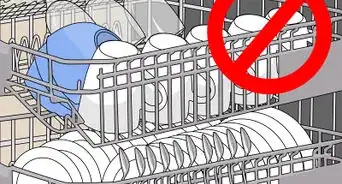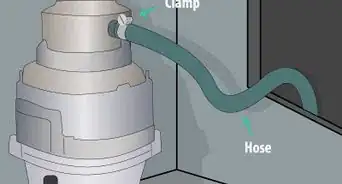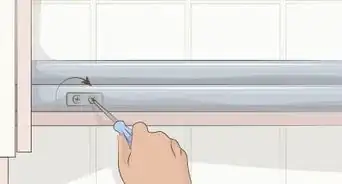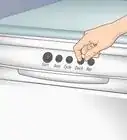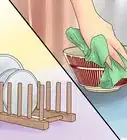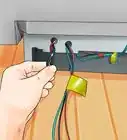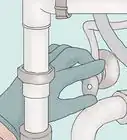This article was co-authored by Gevorg Grigorian. Gevorg Grigorian is an Appliance Repair Specialist and the Owner of G and R Appliance Repair in Los Angeles, California. With over 12 years of experience, Gevorg specializes in residential and commercial appliance repairs as well as heating, ventilation, and air conditioning (HVAC) services. Gevorg holds a BS in Business Administration and Management from California State University-Northridge.
There are 8 references cited in this article, which can be found at the bottom of the page.
This article has been viewed 250,122 times.
Dishwashers are a part of our everyday life. We count on them to clean our dishes. There are many ways a dishwasher can malfunction. Sometimes, one broken component can cause several problems. Knowing various symptoms can help you know how to diagnose dishwasher problems.
Steps
Dishwasher does not Work at All
-
1Check fuses and circuit breakers to make sure one has not blown or tripped. You should also make sure the dishwasher is firmly plugged into the outlet.[1]
-
2Inspect the wiring of the plug for breaks or other damage. The electrical cord should be replaced if you find any damage.Advertisement
-
3If you tried the steps above and the dishwasher still does not work, it is likely one of the mechanical components is broken. In this case, inspect the door latch to ensure it is working properly.
-
4Test the door and selector switches with a continuity or multimeter tester. You should also test the timer, motor and motor relay inside your dishwasher.[2]
Dishwasher does not Fill or Drains During Filling
-
1Confirm that your water supply to the appliance is turned on and there are no leaks between the supply and the dishwasher.[4]
-
2Ensure there are no kinks in the fill lines that are preventing the dishwasher from filling properly. Check the door latch, float assembly, inlet and drain valves. Check the screens of valves for blockages.[5]
-
3Test the door and float switches for continuity. You should do the same for the inlet valve if visual inspection does not show anything.
-
4Verify that the drain valve arm is working correctly. There are two parts to the drain valve, the gate arm and the solenoid.
- Grasp the valve arm and try to move it up and down. The arm should move smoothly. If it is difficult to move, ensure the springs of the arm are not damaged or missing.
- If the arm is undamaged but doesn't move properly, you will need to replace the solenoid. Remove the connecting wires with needle-nosed pliers and label them. Use a screwdriver to take out the screws and change the bad solenoid.
Water does not Drain
Water or Soap is Leaking Out
Noisy Dishwasher
-
1Examine the spray arms, inlet filter screens and the drain for damage and blockages. The inlet valve may need to be tested as well.
-
2Inspect the dishwasher motor and mounts. You should also check the fan motor and blades for damage.[12]
Dishes are not Clean
-
1Check for proper water level, pressure and temperature. Clean the fine particle filter and water inlet filters.[13]
-
2Ensure the detergent dispenser, spray arms and different valves are working correctly. Make sure none of the valves or hoses have blockages.[14]
-
3Verify that the inlet and drain valves have the proper continuity and resistance.
- You should also inspect the selector switch, timer motor and heating element for the correct continuity. Test the bimetal terminal assembly last.
- Check the spray arm outlet holes to see if they are full of debris (e.g. plastic container labels etc). You may need to remove these and use a garden hose and/or a high pressure washer to force the debris out of them. Also check that your debris filters at the bottom of the unit are seated properly. Some may warp due to a heating coil close by. You may need to replace any that have warped.[15]
Expert Q&A
Did you know you can get expert answers for this article?
Unlock expert answers by supporting wikiHow
-
QuestionHow do you check if your dishwasher is clogged?
 Gevorg GrigorianGevorg Grigorian is an Appliance Repair Specialist and the Owner of G and R Appliance Repair in Los Angeles, California. With over 12 years of experience, Gevorg specializes in residential and commercial appliance repairs as well as heating, ventilation, and air conditioning (HVAC) services. Gevorg holds a BS in Business Administration and Management from California State University-Northridge.
Gevorg GrigorianGevorg Grigorian is an Appliance Repair Specialist and the Owner of G and R Appliance Repair in Los Angeles, California. With over 12 years of experience, Gevorg specializes in residential and commercial appliance repairs as well as heating, ventilation, and air conditioning (HVAC) services. Gevorg holds a BS in Business Administration and Management from California State University-Northridge.
Appliance Repair Expert Remove the filter and rinse it under the sink to make sure there's no build up or anything like that there. Before you put the filter back in, shine a flashlight into the hole where the filter was, and make sure there's no debris in there. Sometimes obstructing objects can get inside there, including broken glass and seeds.
Remove the filter and rinse it under the sink to make sure there's no build up or anything like that there. Before you put the filter back in, shine a flashlight into the hole where the filter was, and make sure there's no debris in there. Sometimes obstructing objects can get inside there, including broken glass and seeds. -
QuestionWhy is my dishwasher leaking?
 Gevorg GrigorianGevorg Grigorian is an Appliance Repair Specialist and the Owner of G and R Appliance Repair in Los Angeles, California. With over 12 years of experience, Gevorg specializes in residential and commercial appliance repairs as well as heating, ventilation, and air conditioning (HVAC) services. Gevorg holds a BS in Business Administration and Management from California State University-Northridge.
Gevorg GrigorianGevorg Grigorian is an Appliance Repair Specialist and the Owner of G and R Appliance Repair in Los Angeles, California. With over 12 years of experience, Gevorg specializes in residential and commercial appliance repairs as well as heating, ventilation, and air conditioning (HVAC) services. Gevorg holds a BS in Business Administration and Management from California State University-Northridge.
Appliance Repair Expert
Warnings
- Always turn off the power to the device before testing components. Call a qualified repair technician if you are unsure on how to test them correctly.⧼thumbs_response⧽
- Wear shoes with rubber soles and avoid working in wet areas. You should also use insulated tools while working on electrical devices. Proper shoes and tools can help prevent electrocution.⧼thumbs_response⧽
Things You'll Need
- Basic Tool Kit
- Continuity reader or multimeter tool
References
- ↑ https://housemethod.com/maintenance/dishwasher-wont-start/
- ↑ https://housemethod.com/maintenance/dishwasher-wont-start/
- ↑ https://www.digitaltrends.com/home/common-dishwasher-problems-solutions/
- ↑ https://removeandreplace.com/2017/01/28/dishwasher-will-not-fill-with-water-during-wash-cycle-what-parts-to-check/
- ↑ https://removeandreplace.com/2017/01/28/dishwasher-will-not-fill-with-water-during-wash-cycle-what-parts-to-check/
- ↑ https://www.choicehomewarranty.com/troubleshooting-dishwasher-problems/
- ↑ https://www.diydoctor.org.uk/projects/dishwasher.htm
- ↑ https://removeandreplace.com/2014/12/06/how-to-repair-a-dishwasher-leaking-water/
- ↑ Gevorg Grigorian. Appliance Repair Expert. Expert Interview. 30 July 2020.
- ↑ https://removeandreplace.com/2014/12/06/how-to-repair-a-dishwasher-leaking-water/
- ↑ Gevorg Grigorian. Appliance Repair Expert. Expert Interview. 30 July 2020.
- ↑ https://removeandreplace.com/2014/04/11/dishwasher-making-loud-grinding-noise-during-wash-cycle-how-to-fix/
- ↑ https://www.diydoctor.org.uk/projects/dishwasher.htm
- ↑ https://www.diydoctor.org.uk/projects/dishwasher.htm
- ↑ https://www.digitaltrends.com/home/common-dishwasher-problems-solutions/
